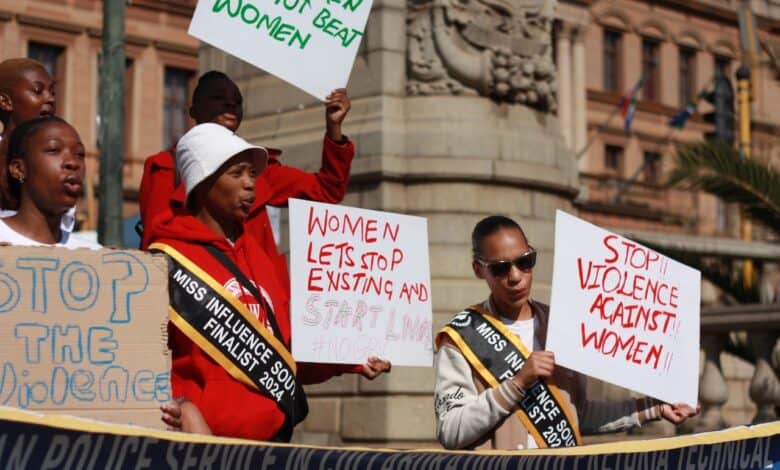News
Noodlyn ‘n lewensaar vir geslagsgebaseerde geweldslagoffers in Pretoria

In a report on gender-based violence, statistics show that Pretoria is the city in South Africa from which the second-highest number of emergency calls have been made by individuals.
During the period January 2020 to December 2023, there were 90 calls per 100,000 residents, totaling 3,640 calls, made from Pretoria to the helpline.
Most calls were made from Johannesburg to the emergency line: 94 calls per 100,000 residents, totaling 4,528 calls.
The TEARS Foundation in partnership with the University of Johannesburg compiled the report.
It reveals precise statistics on the location and victim profiles of gender-based incidents in the country.
The information was obtained from the organization’s Help-at-your-fingertips service.
This helpline from the TEARS Foundation for victims is a USSD service (*134*7355#) that sends information through a cell phone.
This is done using simple quick-based technology. With such short text services, text messages are not stored on the recipient or sender’s side and promote interaction.
While the findings are based on 53,004 calls received nationwide over a four-year period, this number excludes calls that were not completed, wanted to remain anonymous, and could not be recorded for the sake of pure accuracy.
The founder of TEARS, Mara Glennie, says the research report primarily focuses on the time, location, and frequency of calls from the same number, and the occurrence of calls during certain times of the year such as school or public holidays.
She believes the report is “a call to action to prioritize gender-based violence.”
The findings include the weekdays with the highest number of calls nationwide over four years: Sundays (8,541), followed by Tuesdays (8,524) and Mondays (8,332).
Glennie believes such data can help organizations combatting gender-based violence to better utilize resources.
“Also to determine what kind of support is needed and how effective interventions are,” says Glennie.
She believes South Africa will only combat gender-based violence and femicide by placing greater emphasis, also in the workplace, on preventing and responding to incidents.
“We have recommended that organizations and workplaces make complaint and response mechanisms possible for employees,” explains Glennie.
Professor Corné Davis of the University of Johannesburg says the report shows that the imbalance of power relations in families and communities is partly the main cause of gender-based violence.
“Such violence affects both men and women. However, it tends to specifically target women for a variety of reasons and has an excessive impact on them,” she adds.
For more information, visit TEARS’ website at https://tears.co.za/
Read: Gold and record for local Paralympic star in Paris
Do you have more information regarding this story?
Feel free to email us at bennittb@rekord.co.za or call us at 083-625-4114.
For your daily free community news, visit Rekord’s website: Rekord
Also, visit our Facebook, Twitter, and Instagram pages.






















